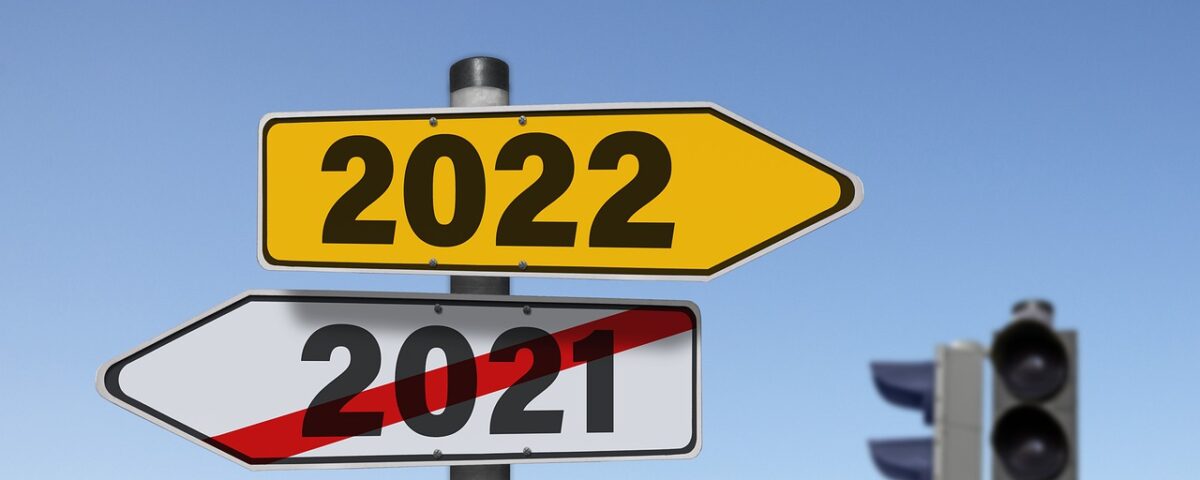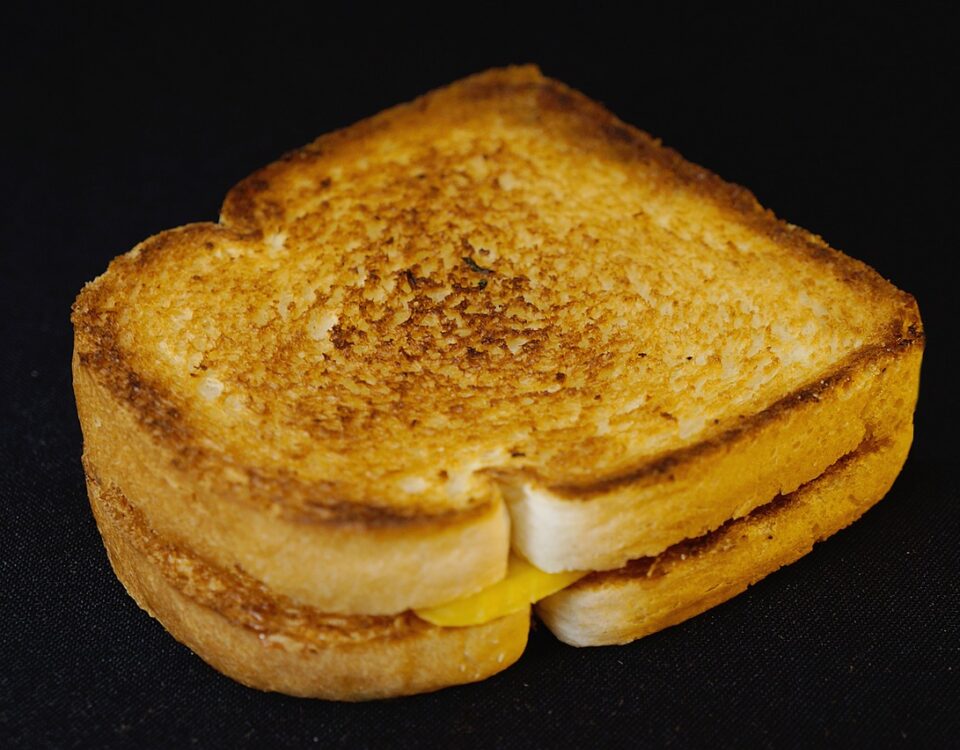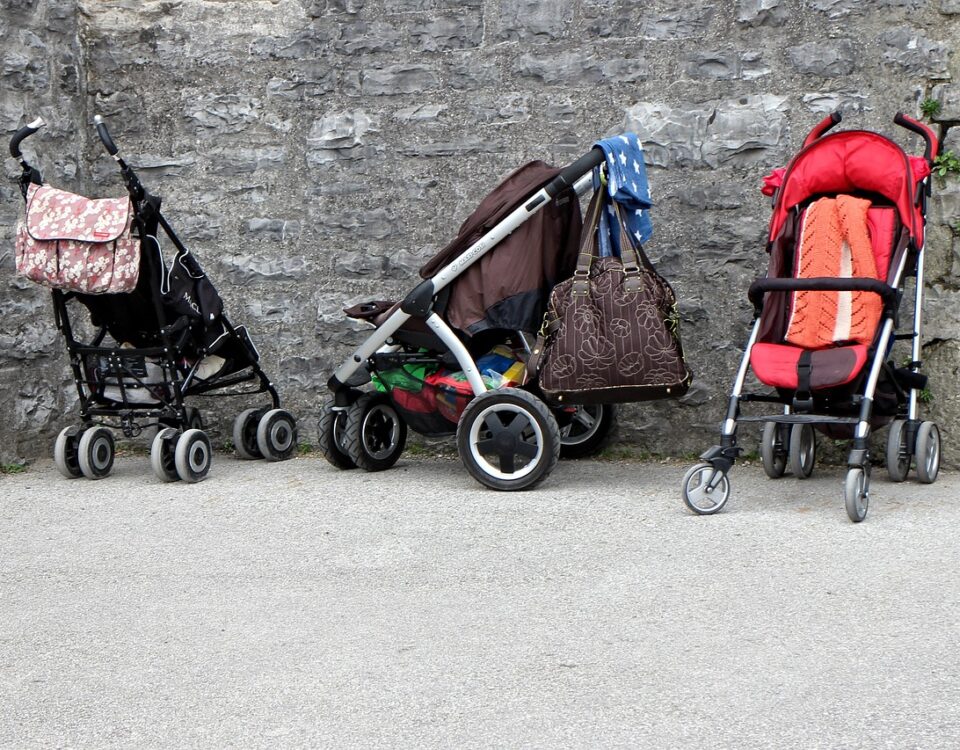
New Year’s Resolution: Top Ten Ways to Sound Like an Economist
January 2, 2022
From Development or Conservation to Fat Bears and Big Trees
January 4, 2022Because it’s New Year’s, we can take advantage of the “fresh start effect.”
This is how.
New Year’s Resolutions
These were last year’s most popular resolutions:
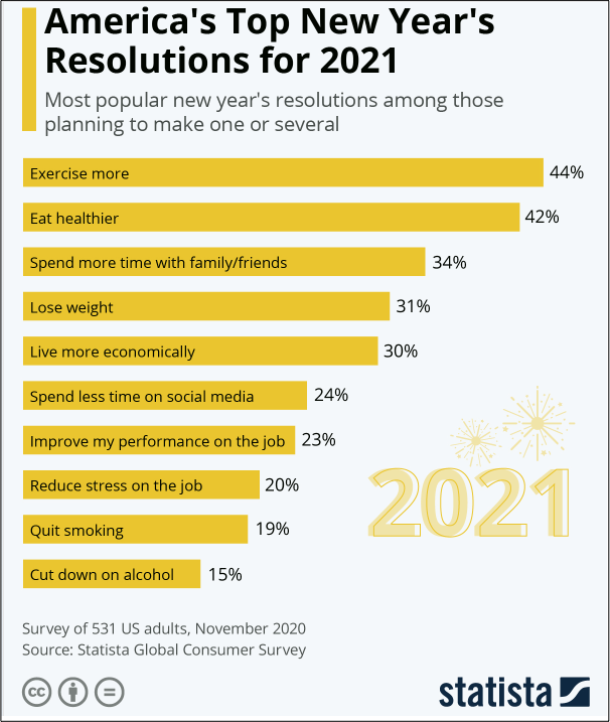
The Fresh Start Effect
The New Year is but one of many opportunities to make a fresh start. It might also be our birthday, a job change, or a public holiday. For some of us, it just needs to be Monday.
One research paper tells us about the inspirational temporal landmarks that separate our life into mental accounting periods. Examples are semesters or even the dividers on a calendar that nudge us toward our aspirations. They come in handy when they let us divide past “flawed” behavior from what we plan for a more perfect future. They also could let us step back from life’s daily details and see the bigger picture.
Researchers found evidence of Google searches that confirmed their “fresh start” hypotheses. Diet searches are more common at the beginning of calendar periods:
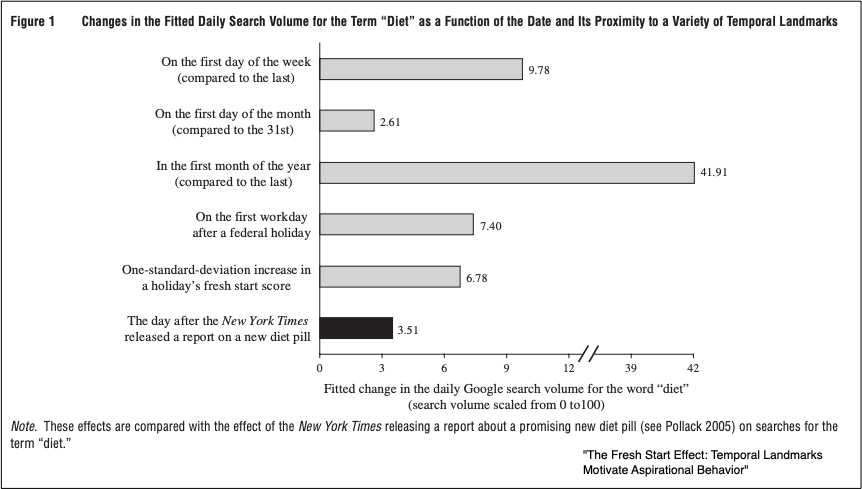
Similarly, we tend to exercise more so at the beginning of the week or during the first month of the semester:
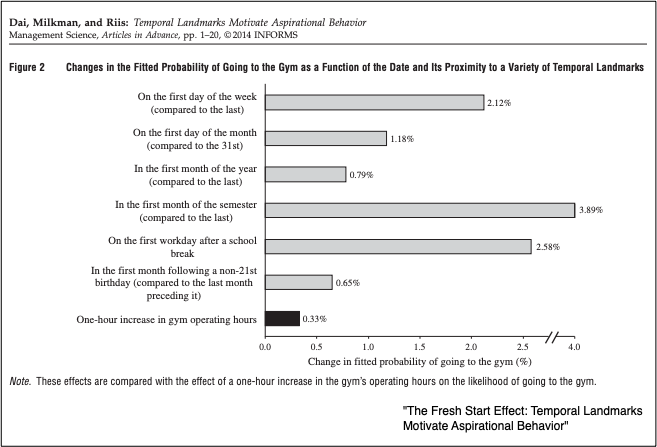
Our Bottom Line: Commitment Devices
Helping us perpetuate New Year’s resolutions, temptation bundling and piggybacking are two of many commitment devices that can be combined with the “fresh start effect.” Defined by behavioral economists, commitment devices are incentives that encourage us to stick with an activity.
With temptation bundling, we combine our “wants” and “shoulds.” Temptation bundling limits the time used for your indulgent wants while encouraging a distasteful activity that will be good for you. You wind up with less of the “wants” and more of the “shoulds.” Done alone, each activity has less utility. Done together they create a value boost. I temptation bundle when I do the dishes while listening to a John Grisham mystery. During morning walks, I listen to podcasts.
With piggybacking, we “attach” a new task to one that we habitually do. The result is a cue. After accomplishing what we usually do, we have something that is supposed to come next. For me, that meant leaving dumb bells on my closet shelf. When I pull out a T-shirt, I do few weight lifts.
I have found that temptation bundling (a riveting audio book with the dishes or good podcasts with a five mile walk) works best. You?
My sources and more: Although sometimes a bit too cheerful for me, Penn Professor Katy Milkman’s Choiceology podcast is always interesting and a good source of behavioral economics–like the “fresh start effect.” The podcast then took me to her paper on the “fresh start effect” and to this The Washington Post article Also do take a look at the commitment devices we shared in past New Year’s posts, here and here.
Our featured image is from Pixabay.
This was an updated version from past years. I hope you enjoyed it.
![econlifelogotrademarkedwebsitelogo[1]](/wp-content/uploads/2024/05/econlifelogotrademarkedwebsitelogo1.png#100878)

